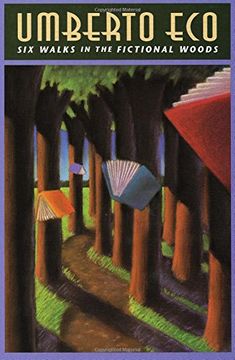
Six Walks in the Fictional Woods (in English)
Umberto Eco (Author) · Harvard University Press · Paperback
$ 23.58
$ 32.00
You save: $ 8.42
Choose the list to add your product or create one New List
Go to My WishlistsDo you have a question about the book? Login to be able to add your own question.
